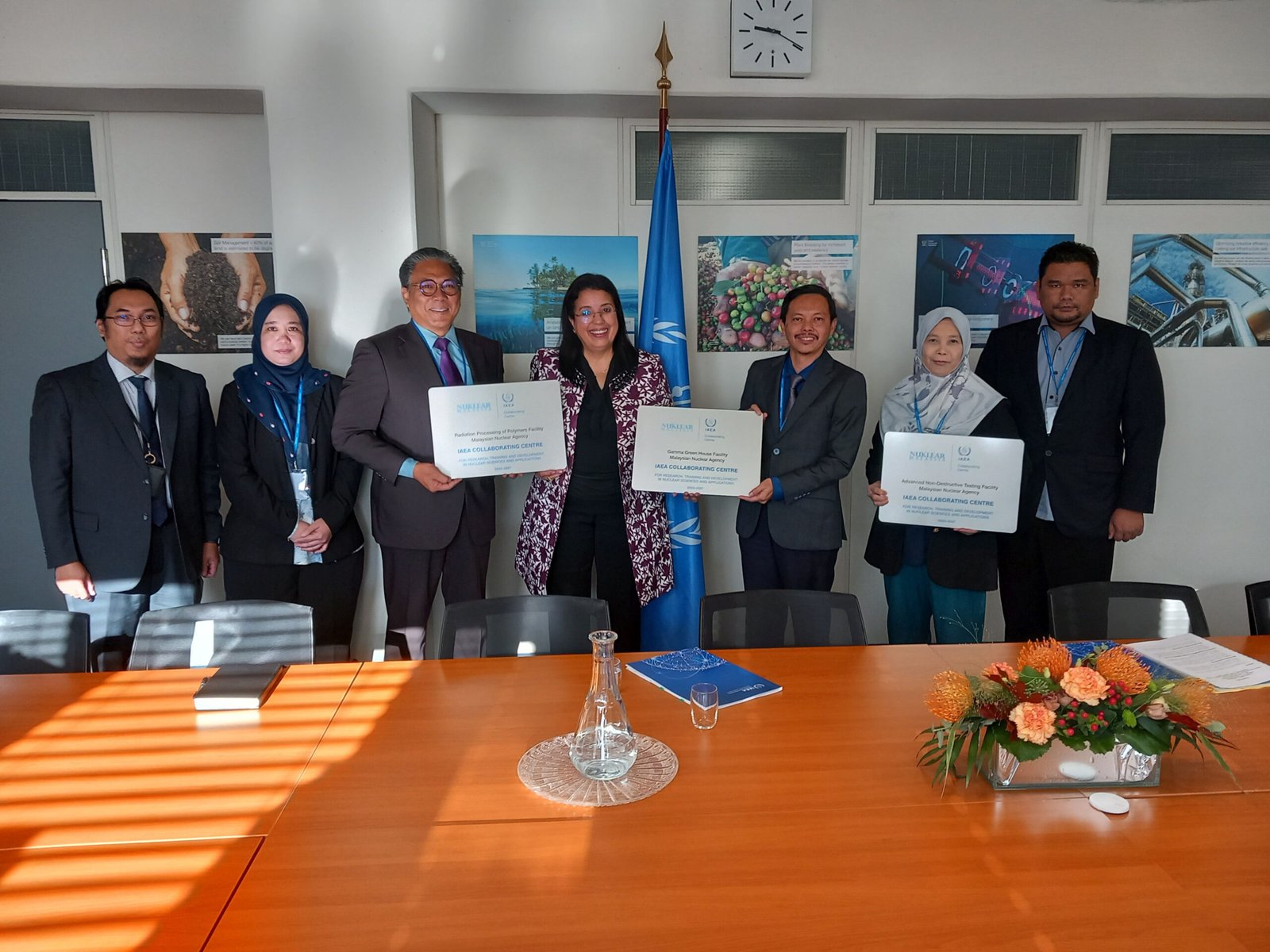The Collaborating Centre intends to leverage the gamma greenhouse to provide services to plant breeders across Southeast Asia.

The International Atomic Energy Agency (IAEA) has reaffirmed the Malaysia Nuclear Agency’s (MNA) status as an IAEA Collaborating Centre, extending cooperation in three pivotal research domains: plant breeding, non-destructive testing (NDT), and radiation processing of polymers.
The collaboration aims to harness nuclear applications for sustainable development, aligning with Malaysia’s commitment to the National Nuclear Technology Policy 2030. The designation recognizes Malaysia’s leadership in applying nuclear technologies and underscores its pivotal role in advancing regional expertise and capacity in the designated areas.
Malaysia has been a trailblazer in utilizing nuclear techniques, particularly mutation breeding, to expedite the natural selection process in plant breeding. MNA’s gamma greenhouse, a sophisticated irradiation facility, facilitates prolonged exposure to low-dose radiation, enhancing the prospects of developing robust, nutrient-rich, and high-yielding crops.
Noteworthy successes include the creation of a resilient rice variety capable of withstanding both drought and flooding. The Collaborating Centre intends to leverage the gamma greenhouse to provide services to plant breeders across Southeast Asia.
NDT plays a crucial role in evaluating material properties without causing damage, contributing significantly to Malaysia’s manufacturing sector competitiveness. Radiography, a key NDT method, is employed for identifying welding defects in industrial piping.
Malaysia has established itself as a hub for NDT services in Southeast Asia. Collaborative efforts between the IAEA and MNA involve research and training in advanced NDT, incorporating artificial intelligence and developing prototypes for instruments and software. The initiative aims to expand regional capacity building and training in the field.
The radiation processing of polymers has led to the development of novel materials suitable for medical devices, cables, and biodegradable plastics. The collaboration between the IAEA and Malaysia Nuclear Agency focuses on enhancing the production of environmentally friendly polymers, including plastics and rubber.
Emphasis is placed on recycling polymers and creating bio-composites by blending natural and synthetic materials. MNA’s expertise in radiation-based plastic recycling is integral to the IAEA’s NUTEC Plastics Initiative, aimed at upgrading global plastic recycling processes using nuclear techniques.
IAEA Deputy Director General Najat Mokhtar highlighted Malaysia’s significant strides in applying nuclear technologies for development since the 1970s.
The renewal of MNA’s Collaborating Centre status is viewed as a crucial milestone in Malaysia’s commitment to harnessing advancements in nuclear technology for sustainable development. The partnership between IAEA and MNA is positioned as a driver of innovation, fostering regional expertise and contributing to sustainable practices in Malaysia and beyond.
The extension of the Collaborating Centre designation signifies the ongoing collaboration’s success and its potential to drive positive change in key research areas. Malaysia’s dedication to promoting the peaceful applications of nuclear technology aligns with the broader objectives of the IAEA, emphasizing the importance of international cooperation in advancing sustainable development through nuclear applications.